As part of our recent series looking at some firewall/ router devices, we got asked about pfSense+ hardware from Netgate. Since Netgate is also in Austin, Texas, we were able to set that up. We are going to have our full review after this current season slows down, but in the meantime, we figured we would show a few of the key views of this that our readers can then use to understand the hardware.
Netgate 4100 pfSense+ Appliance Quick Look
The business end of the Netgate 4100 has two combo RJ45 and SFP WAN ports as well as four RJ45 2.5GbE LAN ports. There is also a standard console port. There is also a combo serial console port. The console port and the SFP ports are something that we have not seen as often in some of the low-cost fanless units from China. All of the I/O is also on the rear of the chassis so one does not have a unit that has cables on both sides of the chassis.
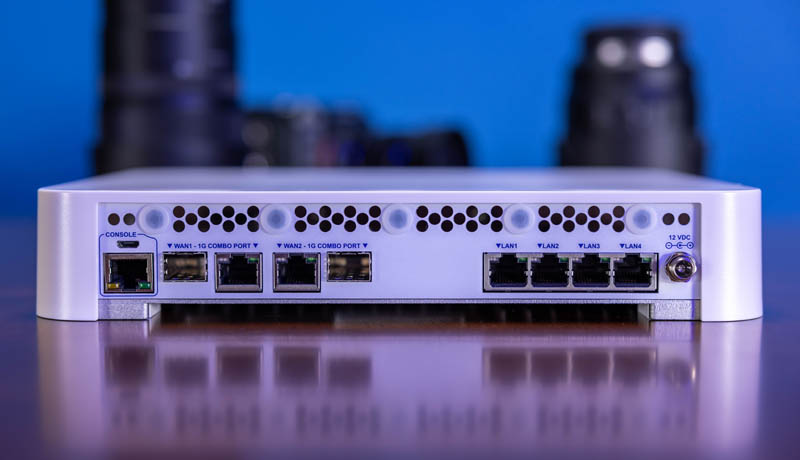
On the bottom of the unit, we can see a large heatsink surface. This is for a relatively low power CPU (Intel Atom C3338R) so this is nice that there is not a fan inside the unit.
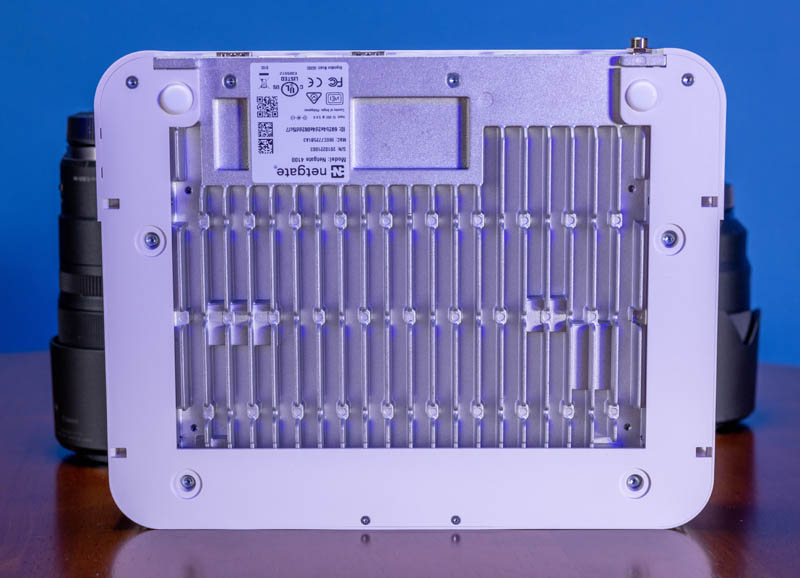
We peeled away the chassis, and here is the other side. As you can see there is a M.2 slot for a NVMe SSD that can be added in the Netgate 4100 Max unit. This is also a custom motherboard.
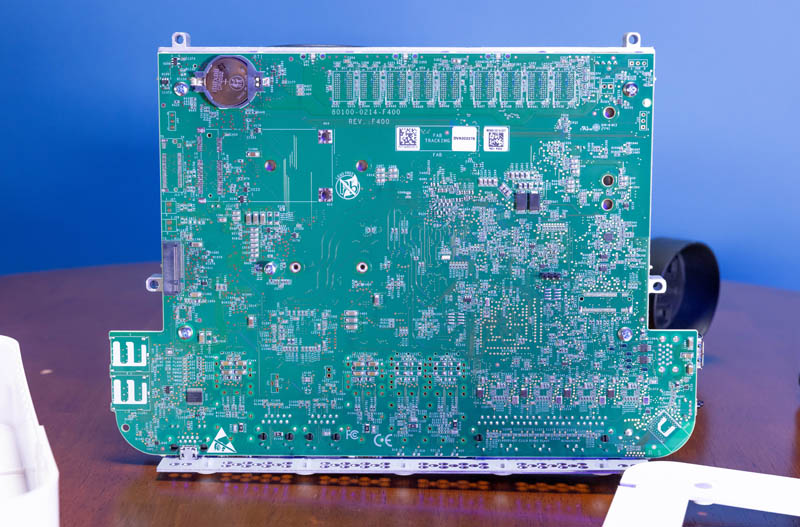
A small, but nice feature is the locking DC power input. We see this on higher-end embedded appliances that use DC barrel power inputs. This locking mechanism prevents the power input from being removed accidentally.
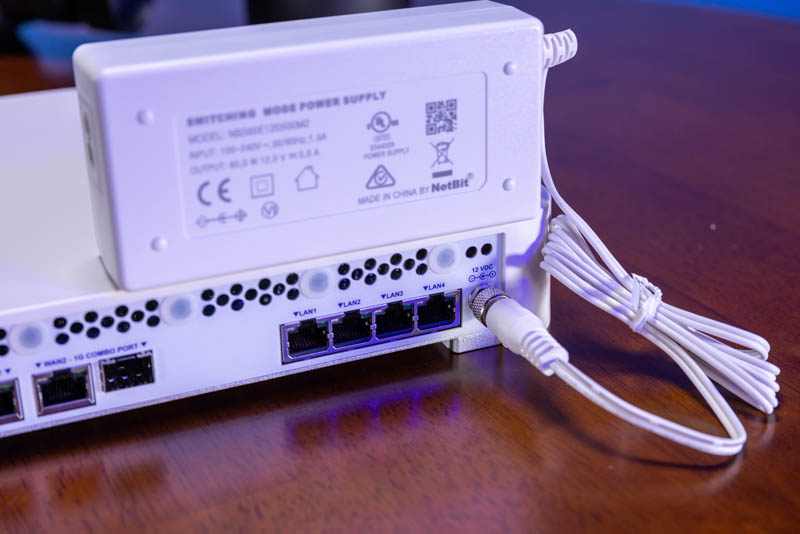
Netgate does not make these units themselves. A well-known in the industry OEM/ODM is making the appliance for Netgate and this is certainly a quality physical design.
Final Words
This is a bit of a teaser for our formal review, but we get a lot of questions on the hardware, and we just wanted to let our readers know that the full review is coming. There are things that we certainly like and there are a few we wish could be better with the unit that we will get to in the full review. Many of our readers will prefer to use the standard pfSense for their homes, but may also need something supported for work, and that is really where these units fit in.
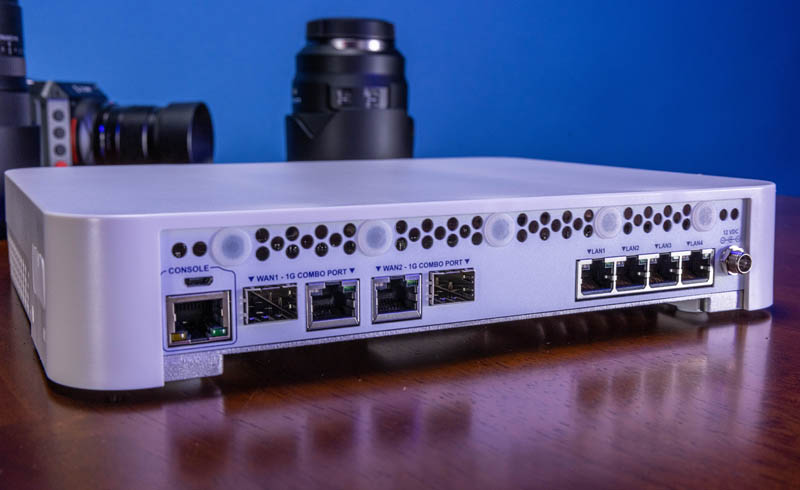
For now, we will simply mention that this is certainly a step above the low-cost fanless units and Patrick mentioned that in his recent video. We had a lot of feedback that readers wanted to see the actual appliances so we now have one in-house that we can begin to look at.
We know this is not a full review, but we have gotten a lot of feedback and wanted to just post a quick status update.

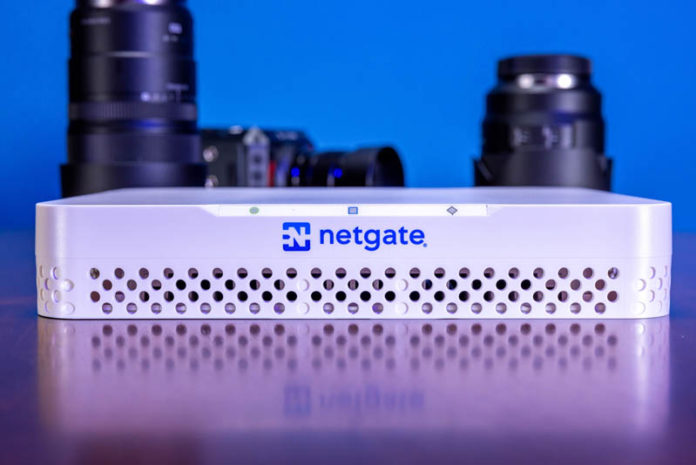
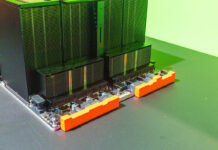
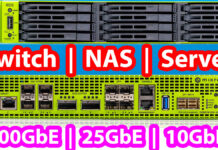

Could this be the OEM?
https://www.silicom-usa.com/pr/edge-networking-solutions/edge-cpes/cordoba-edge-gateway-cpe/
Very insightful Thomas.
Does the passive cooling design impose any restrictions on installation if you choose to rack it(I see that they sell a 1U mounting kit)?
It’s a nice change from the usual whining 40mm fans if this thing ends up in an edge scenario that is close to people; but I’d want to be sure that there aren’t any special requirements in terms of what is racked above or below imposed by the fanless design if considering it for a deployment that is based on a shallow switch rack, possibly with a lightweight edge server or two.
Hello Patrick, probably would we nice to rotate the image of the bottom 180 degrees to
make the label easily readable (I know, I am a bit picky…).
Would like to see you review it with some 20+ firewall rules and 4 different subnets (one at each lan). Interested mostly in cpu usage in that scenario. Throughput is not good measure, but steady cpu usage (With low and steady latency, no packet drops/retry)
Why not 2.5 Gbps WAN ports? Comcast’s Gig tier now offers ~1440 Mbps download speeds..
I believe you can use any LAN port as WAN
Silicom indeed.
https://twitter.com/IPngNetworks/status/1467937291326967817